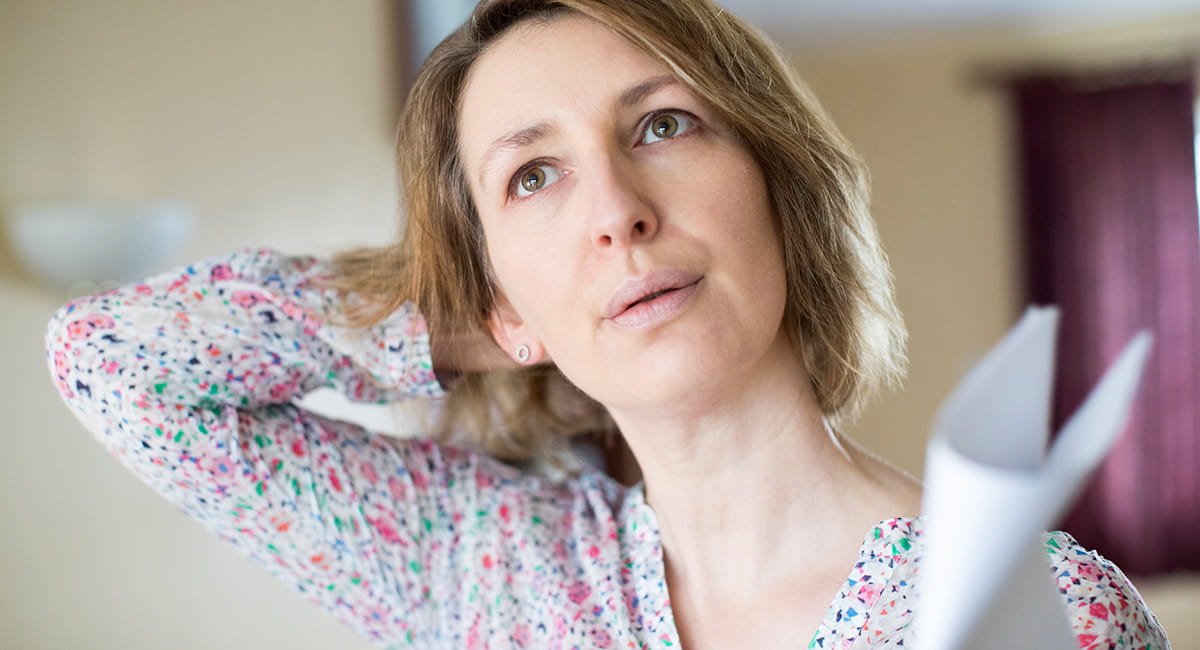“I always try to tell people that the best way you can take care of others is to take care of yourself first, because if you're not healthy, your capacity to help other people is really limited.”—Radeyan Sazzad, Manager, Health Management, Australian Unity
Key points
- Speaking to a professional and maintaining a healthy lifestyle can help to ensure our 40s are a time when we feel the best we ever have. Most women will start to experience symptoms related to menopause between the ages of 42 and 47 years.
- Mental health can be a big challenge in your 40s due to hormonal changes and the stresses of everyday life—so it’s important to get on top of this early.
The 40s are the new 30s, right? Although you may still feel as young as ever throughout this decade, you are officially hitting the much-maligned middle age.
So while it’s the perfect time to enjoy life—and everything you’ve worked to achieve—it’s also a good time to start thinking about your health. Let’s hear from the experts on what to expect when it comes to common ailments and conditions during this decade.

The little niggles
“People tend to start losing muscle mass from 30 onwards, and by 40 they can start to feel a bit sore in places, as well as noticing reduced fitness and strength,” says Radeyan Sazzad, Manager—Health Management at Australian Unity. The good news is that your 40s are a relatively stable time for your physical health and, if you lead an active lifestyle, even muscle mass loss can remain quite stable.
If you do suffer back or knee pain, for example, it’s not necessarily downhill from there, says Radeyan. “There's nothing to suggest it will turn into a chronic problem. If you seek help from your healthcare team early on, you can often return to your normal self.”
These little niggles are a useful reminder that your 40s are a good time to make changes to mitigate the more aggressive issues that can occur in later years. Radeyan advises getting all the recommended screening tests and making the most of your health insurance extras by seeing professionals such as a physio, chiro, dietitian, optometrist and dentist.
Speaking to a professional and maintaining a healthy lifestyle can be “really, really valuable” to make sure our 40s are a time when we can “feel the best we ever have”, says Radeyan. “Even making really small changes to your lifestyle can reduce your risk of mortality by anywhere between 17 and 27 percent.”
The start of menopause
For women, the 40s generally marks the end of their child-bearing days. While a small (although growing) number of women give birth in this decade—about 1.5 percent of women giving birth are aged 40–44 years and 0.1 percent are aged 45-49—most women start to experience the transition to menopause.
Dr Tessa King, a specialist women’s health GP at Jean Hailes for Women’s Health says, “perimenopause is the time when women start to experience symptoms related to the menopausal transition. The average age for perimenopause is 42 to 47 years, and the average age for completion of menopause is 51.”
The most common symptoms of menopause are hot flushes and night sweats. Mood changes, such as irritability, anxiety and depression, can also occur, along with joint pain, brain fog and memory or cognition issues. “And then some women experience a sensation like ants crawling on their skin,” adds Tessa. Ouch!
It’s important to remember that women will experience the symptoms differently, too, with some (lucky) women not noticing any symptoms at all. If you’re concerned, see a GP or specialist in women’s health, as many of the symptoms are treatable.

Increased anxiety and depression
Statistics show women are about two to four times more likely to feel depressed during the perimenopause transition and twice as likely to develop anxiety in their 40s, says Tessa. “Mental health can take a big hit, which can be related to hormones. It is something to look out for and speak to your health professional about so you can get on top of it early.”
Radeyan agrees that this age group of women experience “an increased prevalence of being diagnosed with mental health conditions”.
He says it can also be a result of the life stage people have reached: “I think people underestimate that the 40s can be quite a tough time. You may have kids, but you also have your aging parents. Caring for both generations can be quite significant.”
Caring can impact both our physical and mental health, explains Radeyan: “I always try to tell people that the best way you can take care of others is to take care of yourself first, because if you're not healthy, your capacity to help other people is really limited. It manifests in physical and mental health conditions—being rundown and overtired will result in potential issues in the physical body, but also you can imagine the toll it takes mentally as well.”
While the 40s do bring these new health challenges, finding the right professionals and proactively working on our health means—with a bit of luck—we can feel better than ever throughout the decade.


